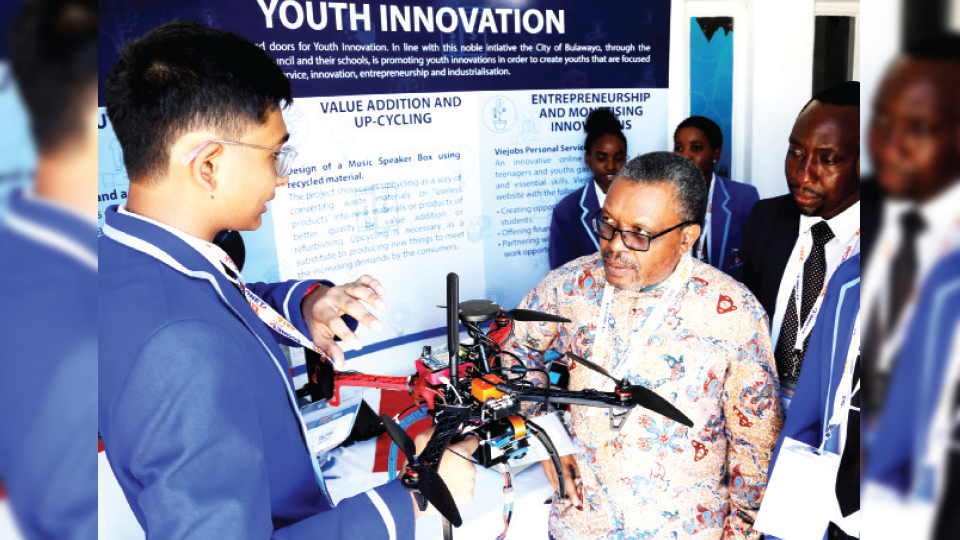High Court bars woman from registering child in late father’s name

 Fidelis Munyoro Harare Bureau
Fidelis Munyoro Harare Bureau
The High Court has blocked a Harare woman from registering her minor child born out of wedlock in the late father’s name without the relatives’ consent and instead allowed her to register the child in her own family name.
Ms Zvikomborero Paunganwa approached the High Court challenging the constitutionality of Section 12(2) (c) of the Births and Deaths Registration Act (Chapter 5:02).
The law requires that if the alleged father of a child is deceased, his parents or near relatives should confirm paternity of child.
In a judgment likely to spark heated debate on women and children’s rights, Justice Priscilla Munangati-Manongwa ruled that the requirements were sensible and within the purview of the law.
“. . . There is nothing unconstitutional about section 12 (2) (c) of the Births and Deaths Registration Act (Chapter 5:02). The provision is not ultra vires the Constitution,” ruled Justice Munangati-Manongwa.
She said authorities had to satisfy themselves that the child was indeed fathered by the deceased or that in the very least the family (whose identity the child seeks to assume) accepts that the child was or could have been fathered by one of their own.
The assumption of a family name, said the judge, apart from through marriage, had immense intrinsic immeasurable values as it links one to ancestry, is sealed by blood and points to origin.
It was also the court’s view that the legislature’s intention in putting such a requirement was to safeguard the family entity.
Justice Munangati-Manongwa also noted that there would be chaos if on mere say so, the Registrar of Births and Deaths Office was obliged to enter a man’s name in the register as the father to any child.
“The carrying of a family name comes with privileges and responsibility culturally, economically and socially, hence it is to be jealously guarded,” she said.
“Family is central to issues of inheritance where it is important that in the absence of a will, whoever gets to inherit has to be a member of the deceased’s family. As such it is not desirable that family assets end up in the wrong hands.”
The judge added that if the provisions of Section 12 (2) (c) of the Act were to be impugned, it would be a free-for-all scenario where any woman who has a child out of wedlock and in the absence of the alleged father could impute paternity to anyone.
“Further, without safeguards, floodgates can be opened where if entering a man’s name in the register is done on mere say so, there can be targeting of the rich, the powerful and or the secure, where they can purport to be fathers, more so when deceased.”
Ms Paunganwa was in an unregistered customary law union when she lost her husband on June 10, 2010.
This was before the parties procured a birth certificate for a minor child born on April 2 the same year.
When approached to issue a birth certificate for the child in the father’s family name, the RG’s office advised Ms Paunganwa that they could not issue the birth certificate in the absence of the husband’s relatives as required by the law.
The RG’s office advised her that alternatively it could only issue the document on the strength of a court order, arguing that “doing so in absence of a court order will be in breach of the statute for purposes of governing issuance of vital identity documents”.
Ms Paunganwa was faced with a situation where the late husband’s relatives were not willing to assist. She approached the court seeking to compel the RG’s office to issue the minor child with the birth certificate.
The issue for determination was whether or not the provisions of the Act complained of offended what the supreme law of the land provided in Section 81(1) (b) and 81 (1) (c) (i).
Ms Paunganwa argued that as the guardian of her child and being a woman she was being discriminated against in her request to procure a birth certificate for her child.
Secondly, that her child’s right to a family name and to a prompt provision of a birth certificate had been contravened.
But Justice Munangati-Manongwa found that in essence, Ms Paunganwa had the capacity to procure a birth certificate. However, the fact that the child was born out of wedlock, assumption of a family name without confirmation from relatives was prohibited by that section.
“In that regard, it is not correct that the applicant is being discriminated upon as a guardian,” she said. “If she so wishes she is able to procure a birth certificate for the child in her own name without the assistance of anyone.”
Registrar General Mr Tobaiwa Mudede and the Master of the High Court were cited as respondents in the matter.











Comments